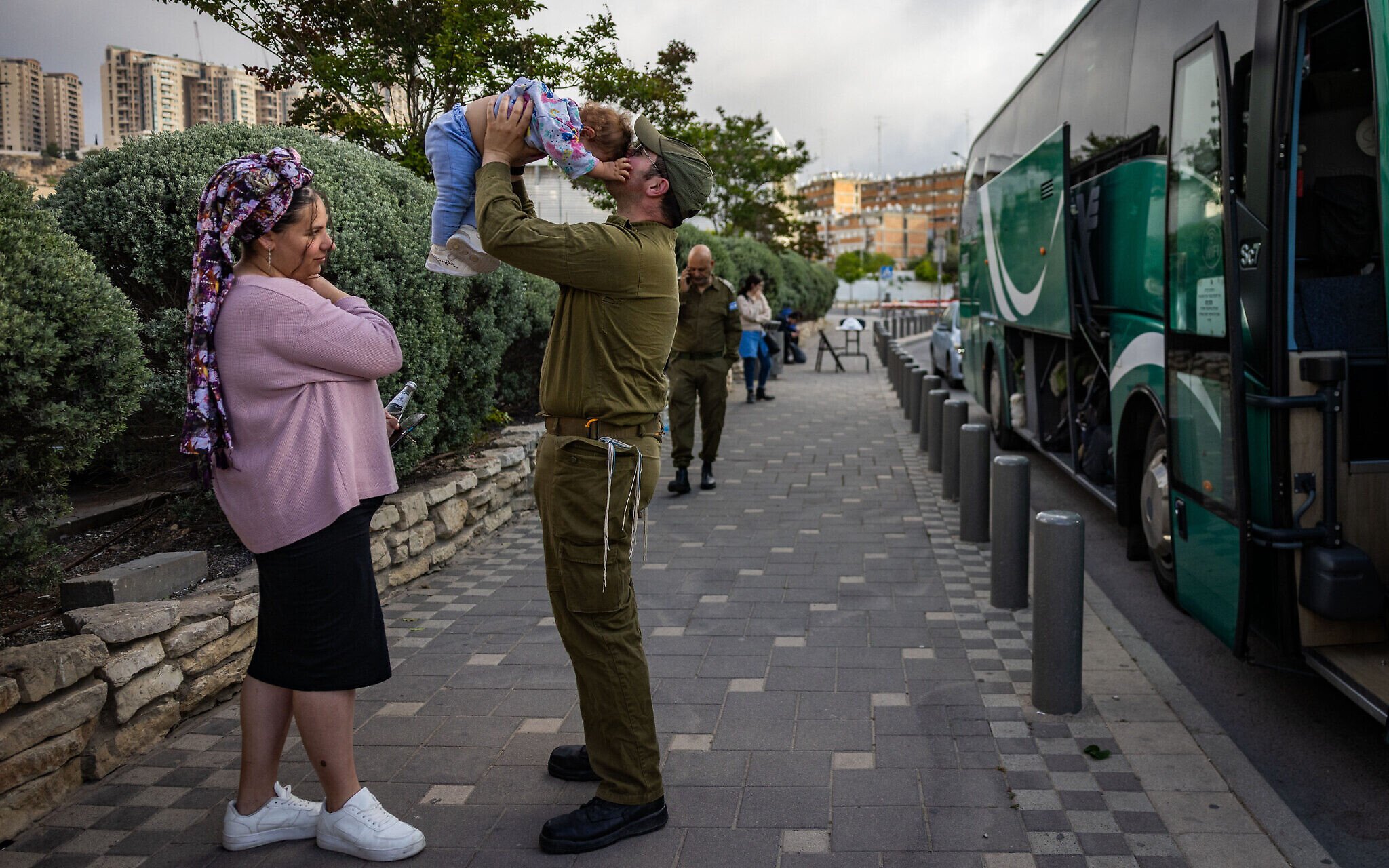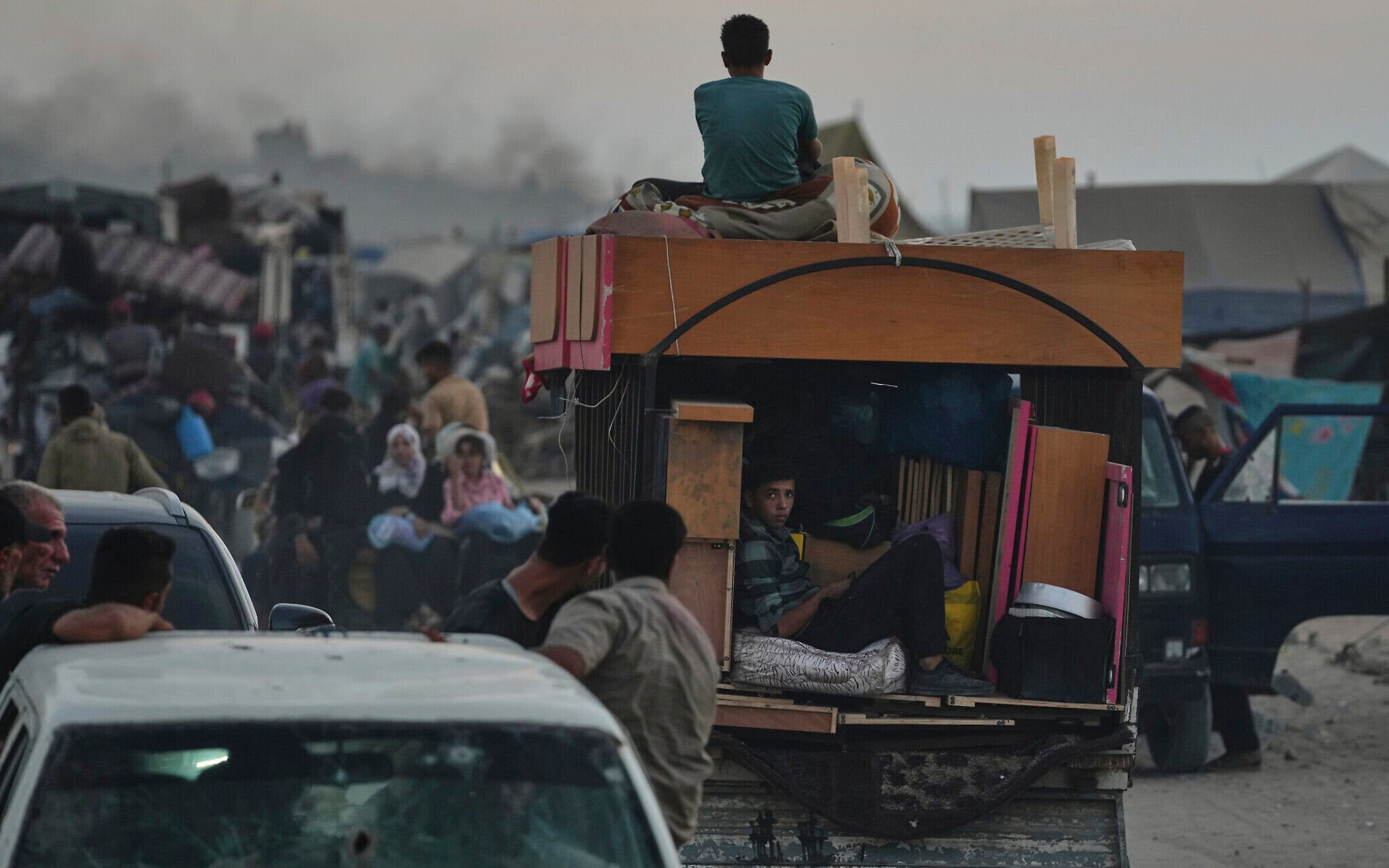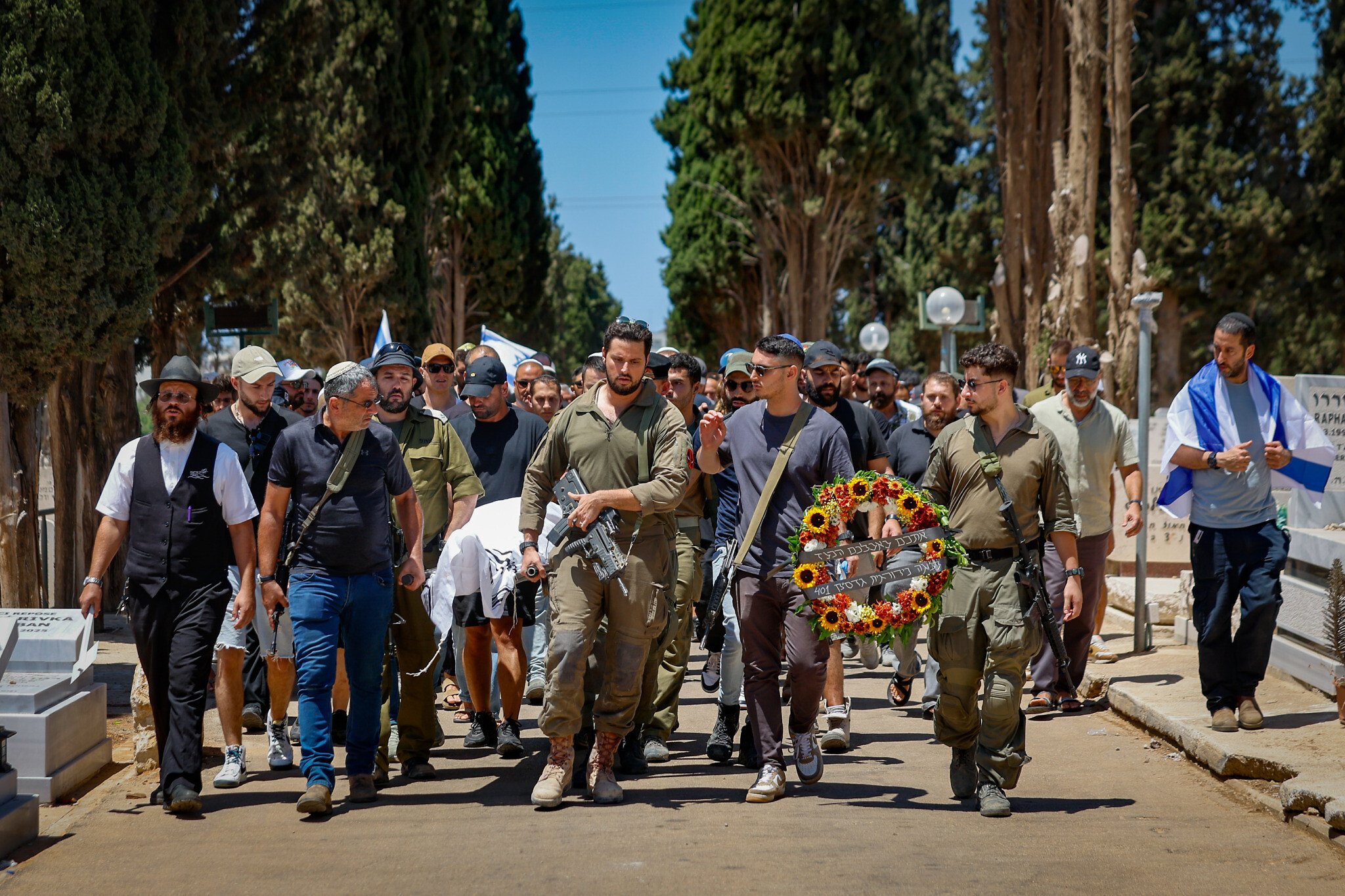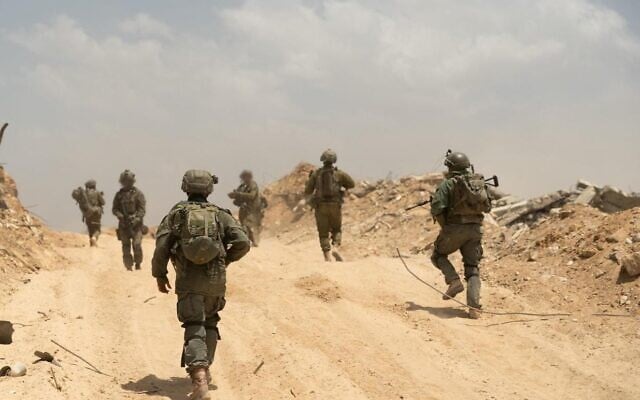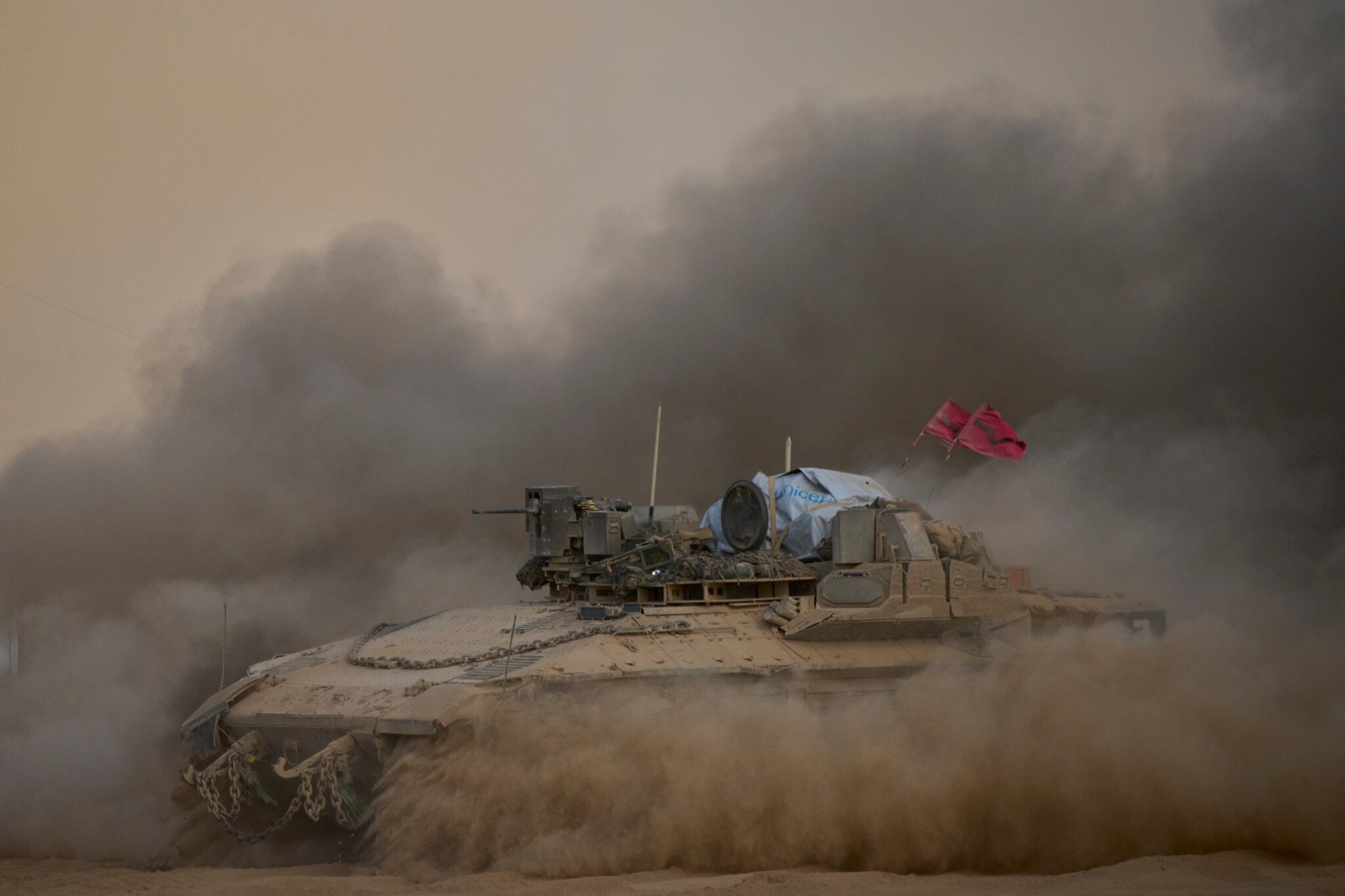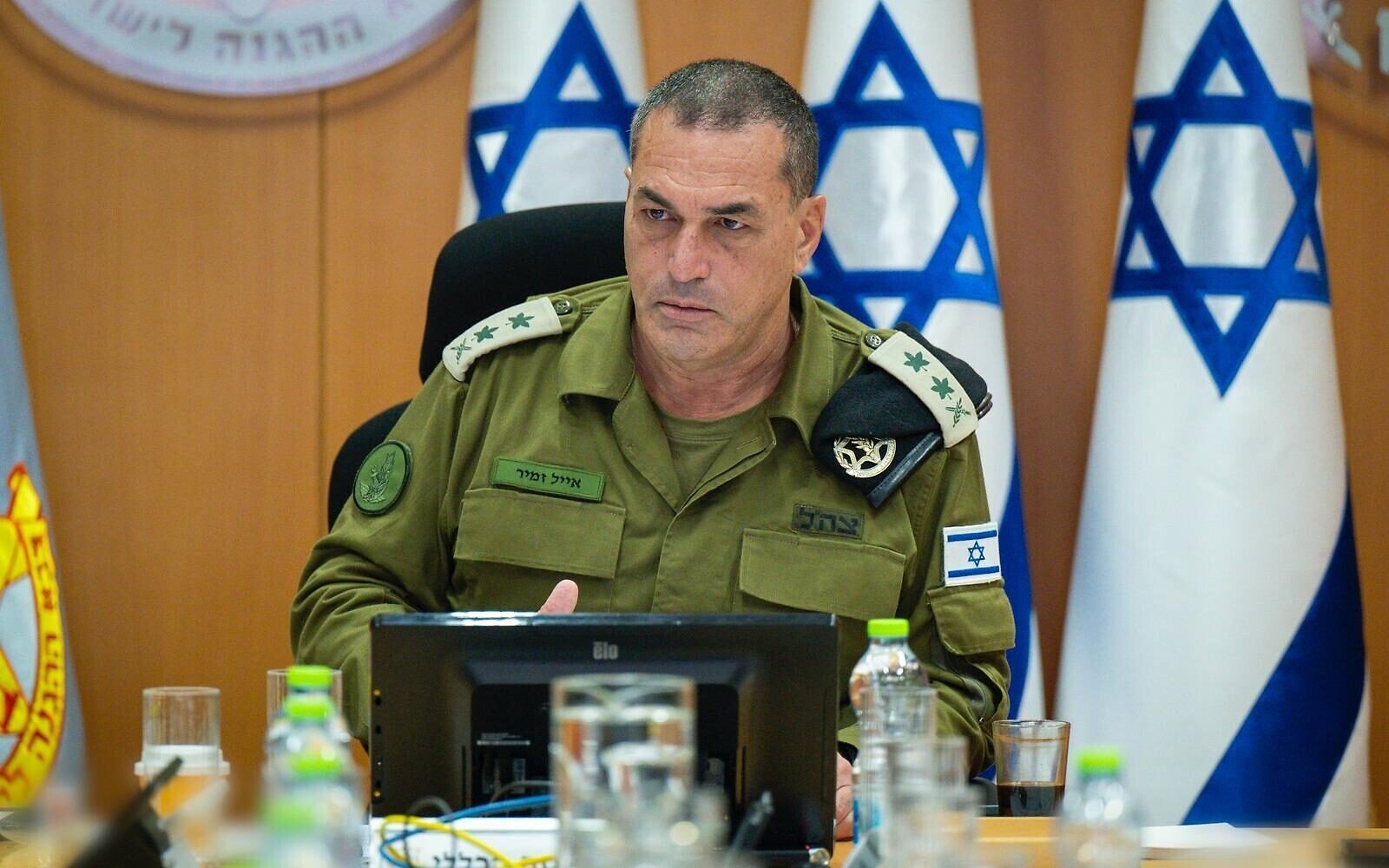


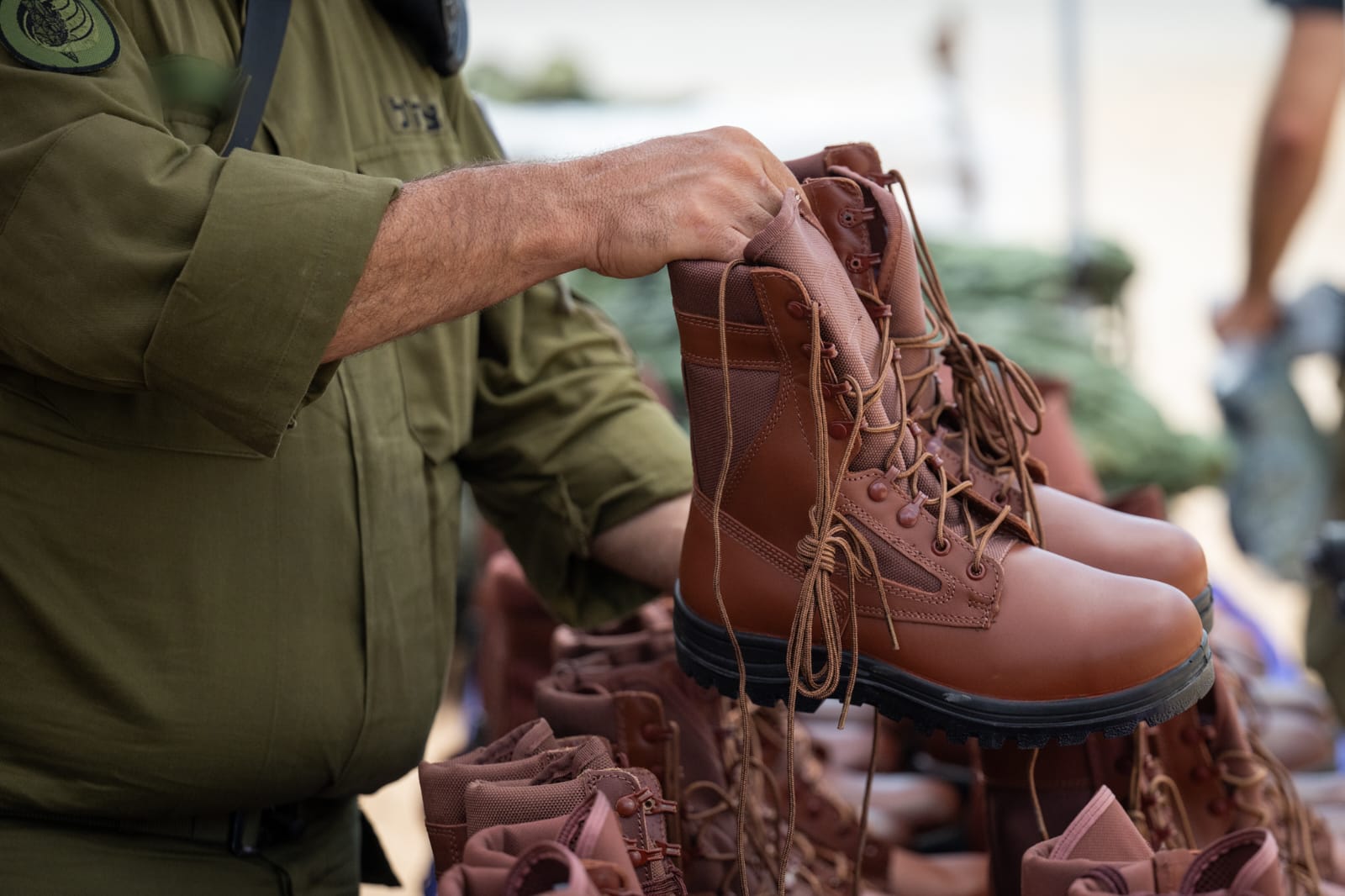
Tens of thousands of reservists were set to be drafted to the Israel Defense Forces Tuesday, in what was said to be the largest single call-up since right after the start of the war almost two years ago, though turnout was reportedly low, with fewer reservists showing up for duty.
According to Hebrew-language media, the call-up — the first phase of a wider draft for the planned conquest of Gaza City — faced challenges with fewer reservists inclined to report for duty after nearly two years of war, repeat rounds of service, and a sense that the burden is not fairly shared among the population.
Around 60,000 were set to be drafted in a number of waves for the operation, with some 40,000-50,000 ordered to show up for duty on Tuesday, one day after the start of the school year.
Many reservists have reportedly requested exemptions, citing personal or financial reasons, and units are seeing lower turnout than in previous emergency call-ups. Hundreds have signed a letter vowing not to report for duty, with one calling the Gaza City operation “patently illegal.”
Senior officers noted that even within regular battalions, company and platoon sizes have shrunk, while a significant portion of the reservists reporting were volunteers who were not organically part of the units.
“There are fewer teams that have confirmed their arrival compared to previous times. The companies and platoons are less full — we have to wait and see who will arrive,” an unnamed officer told the Kan public broadcaster.
The reservists — who will be away from home during the upcoming Jewish High Holidays period — were set to undergo training and preparation in the coming days, with some slated to replace regular forces stationed in Israel’s north and the West Bank as the IDF plans to eventually deploy four divisions into Gaza City.
The Wall Street Journal reported that some senior officers have had to think outside the box in attempts to recruit enough soldiers.
“I’m looking for combat soldiers, mainly medics and snipers, for an operation of 70 days starting on September 11. If there are reservists who are interested, please message me privately,” wrote one on a WhatsApp group for university students.
Omer Ben Hemo of the Israeli Reservists — Generation of Victory organization called on ultra-Orthodox men to enlist in the army to help ease the burden.
Some 80,000 ultra-Orthodox men aged between 18 and 24 are currently believed to be eligible for military service, but have not enlisted. The IDF has said it urgently needs 12,000 recruits, due to the strain on standing and reserve forces, throughout the ongoing war against Hamas in Gaza and other military challenges.
“With all the problems [Haredi men] could have in the army, the situation among the people and in the reserves and among the soldiers is difficult,” Ben Hemo told Channel 12 news.
“If you are our brothers, you need to save us… It doesn’t make sense to do 300 days [of reserve service] a year. We are not regular troops, but reserve soldiers. We have family, businesses and studies — it shouldn’t look like this,” he said.
On Tuesday, a group of more than 300 reservists opposed to the Gaza City conquest announced in a letter that they would not longer report for duty if called up to fight. The effort is affiliated with the left-wing anti-war group Standing Together.
“We are over 365, and counting, soldiers who served during the war and have declared that we will not report for duty when called again,” Sgt. First Class (res.) Max Kresch said at a Tel Aviv press conference. “We refuse to take part in Netanyahu’s illegal war, and we see it as a patriotic duty to refuse and demand accountability from our leaders.”
Kresch, a combat medic, said that the group of reservists and soldiers consists of the same people who rushed to the frontline during the Hamas-led October 7, 2023, attack to protect Israel.
“It is precisely from that same sense of duty that we are driven to refuse,” he declared.
An officer in the Armored Corps named only as Hillel told Channel 12 that while it was not an easy decision to make, he ultimately decided to report for duty for the sake of the hostages and those who live near the Gaza border.
“When you’re under the stretcher, even though your shoulder hurts terribly, and you’re screaming into the air, you know you can’t drop the stretcher, because there’s an injured comrade on it,” he said.
However, he noted that the strain is also being felt by the families of those who have been called back for repeated rounds of service.
“The price is getting heavier and heavier and you see it through the children. They are now starting back in the education system. I will be there on the first day [of the school year], but later on I won’t be there,” Hillel said.
Dalit Kislev Spektor told the Wall Street Journal that a large number of men in her husband’s 150-man unit were now unemployed, divorced or facing financial ruin after months away from home.
“I told him, ‘The war is political, because none of us believes in our leadership. If it was up to me, I would ask you not to go,’” Spektor told the Journal.
Spektor, who leads a group called Ima Era (Wide-awake Mother), which brings together mothers of soldiers, also said that her husband had been deeply impacted when he had to identify the body of a fellow reservist who had died by suicide.
Although the IDF publishes official suicide data only once a year, reported numbers point to a troubling continuation of last year’s rise in such deaths. According to the findings of internal military investigations published in a report last month, most recent suicides among Israeli soldiers were driven by psychological trauma from the ongoing war, including prolonged deployments in combat zones, witnessing harrowing scenes, and the loss of friends.
Reservist Avshalom Zohar-Saar, who also received a call-up, told Channel 12 that it was a difficult decision to go as he didn’t believe he could trust the judgment of the country’s decision-makers.
“I am angry at those who sent me. I am angry at the Israeli government for not clearly saying what we are doing and where,” he said. “Despite everything, I will go to serve, because I believe in the State of Israel and the importance of protecting the people of Israel.”
The new military campaign in Gaza was initially estimated to last four to five months, though officials reportedly say civilian evacuations and the operational buildup are already taking longer than anticipated.
Many commanders remain skeptical about the feasibility of achieving the operation’s ultimate objectives of securing the release of the 48 hostages and dismantling the remaining Hamas strongholds in the area.
The plans to conquer Gaza City have drawn fierce opposition from hostages’ families who fear the planned operation will risk the lives of their loved ones, as well as an international outcry, with governments and humanitarian groups warning of potentially disastrous consequences for Gaza’s civilians. Some one million Palestinians are thought to be sheltering in Gaza City.
IDF Chief of Staff Maj. Gen. Eyal Zamir on Sunday warned ministers that the plan to conquer Gaza City would drag Israel into a full-fledged occupation of the Strip, according to leaked comments carried by Hebrew outlets.
Zamir, who has previously been widely reported to oppose the Gaza City takeover plan, argued to ministers that the scheme lacked a coherent exit strategy and would pull Israel deeper into the Strip.
He instead encouraged a hostage deal, telling cabinet members that “there is a framework on the table, [and] we must take it,” according to Channel 12, which said that, had Zamir not raised the issue, it would not have come up in the meeting.
Prime Minister Benjamin Netanyahu reportedly refused to hold a vote on a proposed hostage-ceasefire deal, saying it was “not on the table.”

